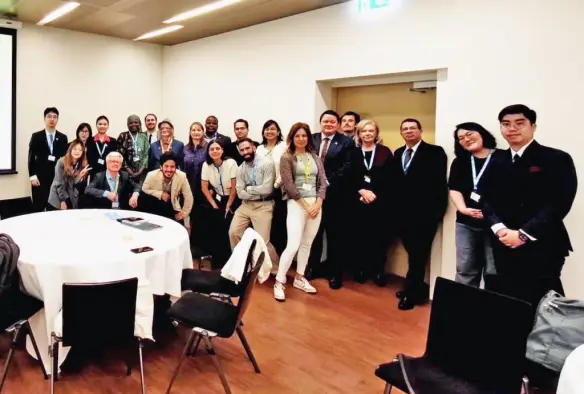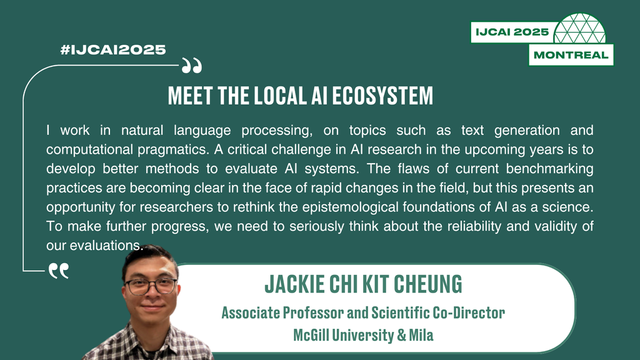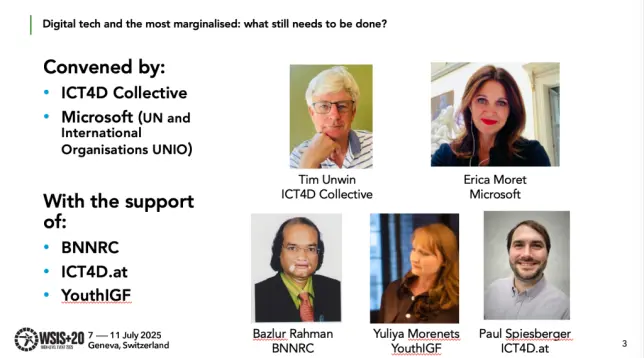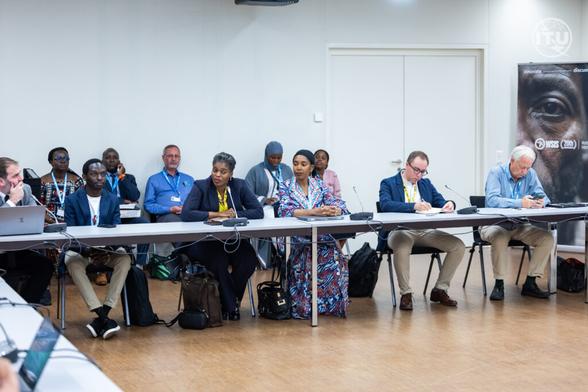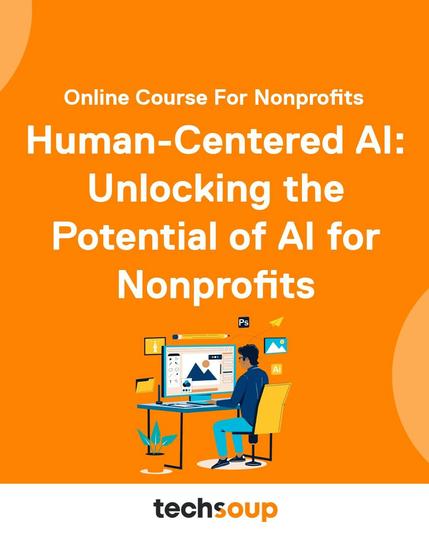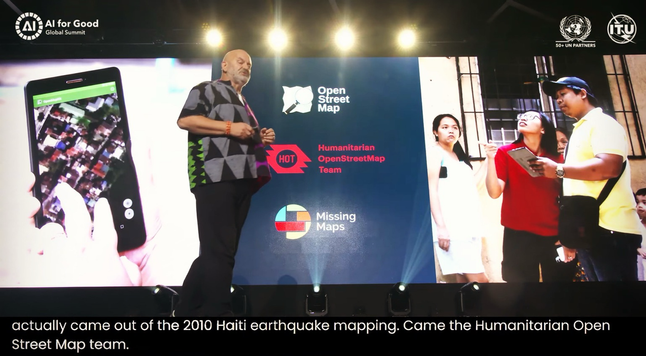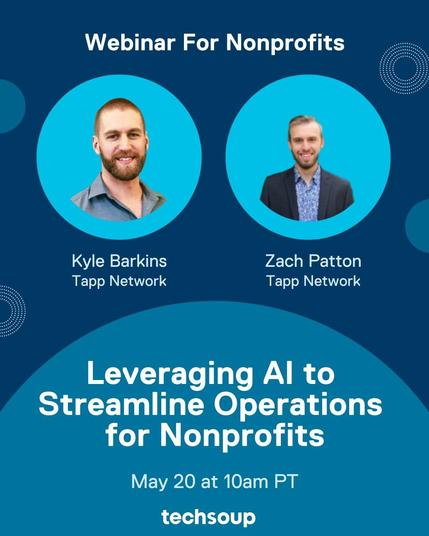WSIS+20 High-Level Event and AI4Good Global Summit 2025
I was privileged enough to visit this year’s World Summit on the Information Society (WSIS) and AI4Good in Geneva, Switzerland. Both organized by the ITU and happened in parallel. I have been there in the past and while the WSIS dates back quite some time, the AI4Good conference is rather new. It is puzzling to see how much more budget is available the new buzz-hyped AI conference while the WSIS is in comparison rather underfunded. The AI stage sparkles while the WSIS is just as always. The first hosts mostly players from the private sector and the latter focuses on the most marginalized on this planet.
I must admit that the AI hype was much stronger the last year when they promoted AI as the saviour to the failing SDGs – a rather ridiculous idea. At the WSIS, I was not any more the only Linux/FOSS user and there were more engineers attending, a welcomed change. Some where represented in the Fediverse and others actively promoted FOSS within the UN. I even chatted with someone about degoogleing Android phones by running custom ROMs to escape surveillance.
The attendees of the WSIS are usually a mix of policy makers, UN delegates, some civil sector and private actors discussing technology and its implications on the most marginalized. While most of them are experts in their own domains, such as agriculture, traditional media or education, they often lack the technical expertise to profoundly understand the technology behind their buzz words. Which often leads to discussion where engineers such as I role my eyes. As an example, I attended sessions about journalism and I have to admit that I got tired of journalists complaining on their iPhones via X tweets that their revenue crumbles and freedom of press is dying. If journalists still believe that their work is valued by surveillance capitalism, then they still lack a profound understanding on how big-tech exploits their business.
I attended a session by OpenAI where their speaker shared, that 40% of their users are under 24 years old and the number one thing they do is learning with ChatGPT. Which underlines the influence this technology has on our younger generation. The company promoted their OpenAI Academy where they train people on their products. OpenAI argued that future jobs such as programmers will not be needed any more and will get replaced by smart AI agents.
The Raspberry Pi Foundation drafted a different picture, the company behind Raspberry Pi computer. Since their beginning, they are invested in education and their speaker stated the following:
- We still need skilled human programmers as AI can generate code but have not automated programming. AI generated code does probably not have ethics or validity baked in
- Learning to code in an essential part of learning to program. Coding remains the most effective way we know to develop computational thinking skills. Knowledge and expertise is built through hands on programming
- Learning to code will open up even more opportunities in the age of AI. Previous waves of automation have increased demand for skilled human programmers – Jevons paradox. AI will increase the reach of programming and computational approaches into new domains. Programming will become relevant across a wider range of roles and is no longer just for software developers
- Coding is a literacy that helps young people to have agency in a digital world. The kids who learn to code will shape the future
- The people who design AI also control the technology. They wield enormous power. The risk is that we concentrate that power into the hands of a small and unrepresentative group. Ensure that all young people can develop these skills is consequential for all of us
Find here their position paper titled Why kids still need to learn to code in the age of AI. They offer Computer Science and AI courses.
It was refreshing to listen to sound criticism behind the power structures of AI. Not the technology is the problem, but rather a small hand of too powerful people controling it to further increase the imbalance between the rich and the poor. AI can have a positive potential to work for the most marginalized, but as every technology, it is currently controlled by an elite to exploit the masses. Meredith Whittaker, the president of the Signal Foundation resonated a similar message. In her brilliant review, she pointed out that if AI agents are granted unlimited access to our systems, then their Signal Messenger cannot any more guarantee its secrecy. A massive implications for anybody who relies on encrypted communications such as governments, journalists, doctors, activists, minorities or advocates.
The final talk by Geoffrey Hinton turned quite dark. He argued that AIs are like atomic bombs and regulations are far too slow. We face an existential threat and human mankind might cease to exist as AI will take over and eradicate human mankind. Keep in mind that he holds a Turin Award, is a Nobel Laureate and one of the AI Pioneer – someone we should carefully listen to. He painted a scenario where we let loose an AI agent to act on our behalf. It will create sub-goals to reach its main task and will try to grab more power to better achieve the outcome. This will lead to an AI in every system on this planet and it will be superior to any human. It will develop a sense for survival, or has probably already one built in by us. Think of an AI battle robot where humans will drill an AI to survive and succeed at any cost. It will get threaten by us as we would like to turn it off at one point. We will become AI’s number one enemy and might not stand a chance. Geoffrey Hinton demands strong policy by the public sector, a framework for regulation: politicians need to be pushed to create strong regulation to audit every big AI system. He strongly argued against open source AI systems as he sees them as too dangerous and they should not be in the hands of anybody.
Contributions to WSIS
In collaboration with the ICT4D Collective, I was a panel member in our session Digital tech and the most marginalised: what still needs to be done?. It was a wonderful session and Tim wrote a profound blog post about the outcome. Truly a pleasure and honour, a big thank you to Tim for inviting me and it was great to collaborate with my dear colleagues.
I was also delighted to moderate the session WSIS Action Line C7: E-Agriculture organized by FAO of United Nations. A vivid discussion on how technology can support our farmers.
Paul acting as a moderator ©ITU/Pierre Albouy
#AI #ai4good #conference #WSIS #WSISForum
